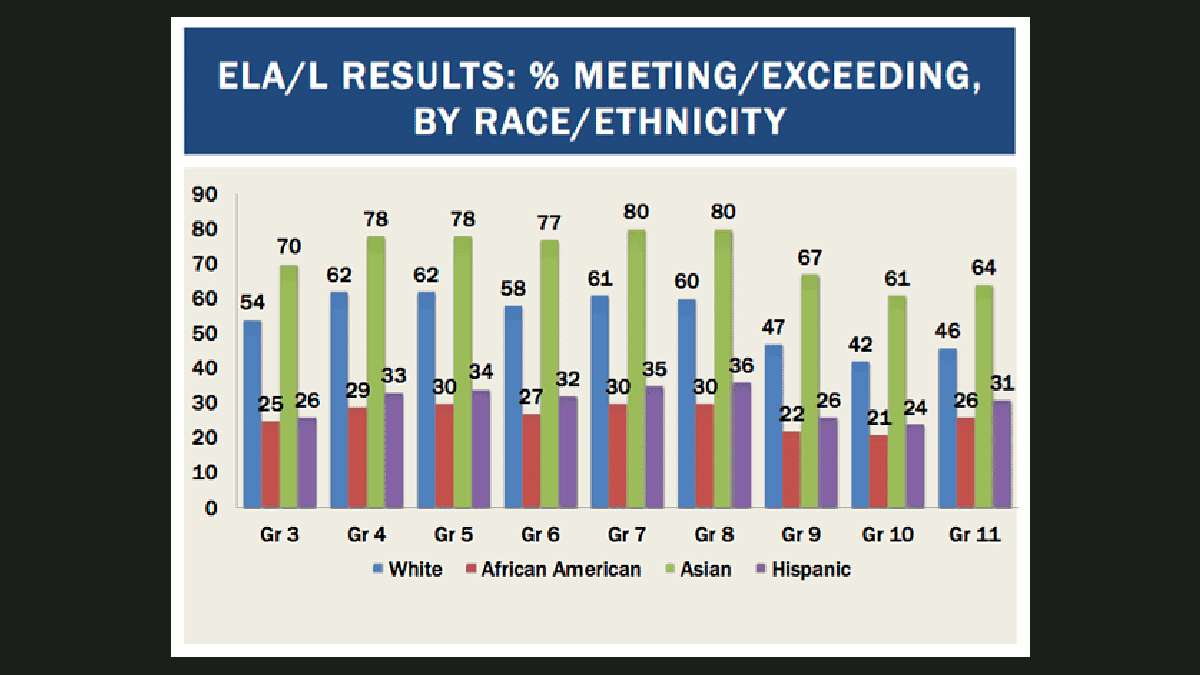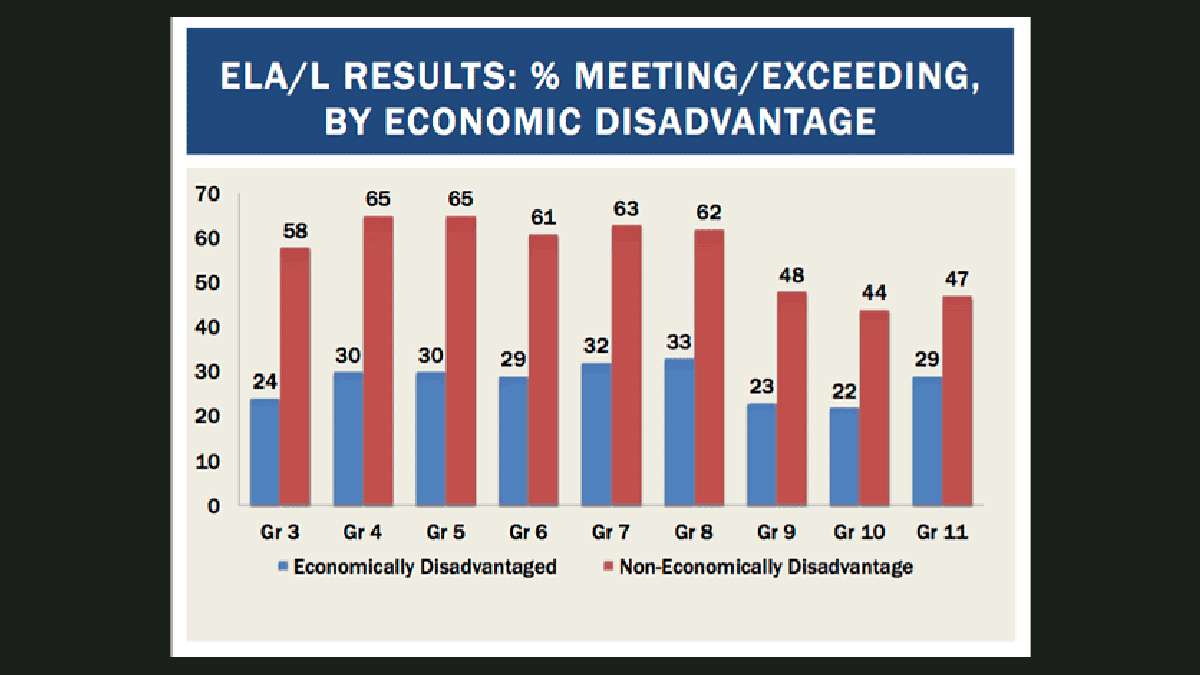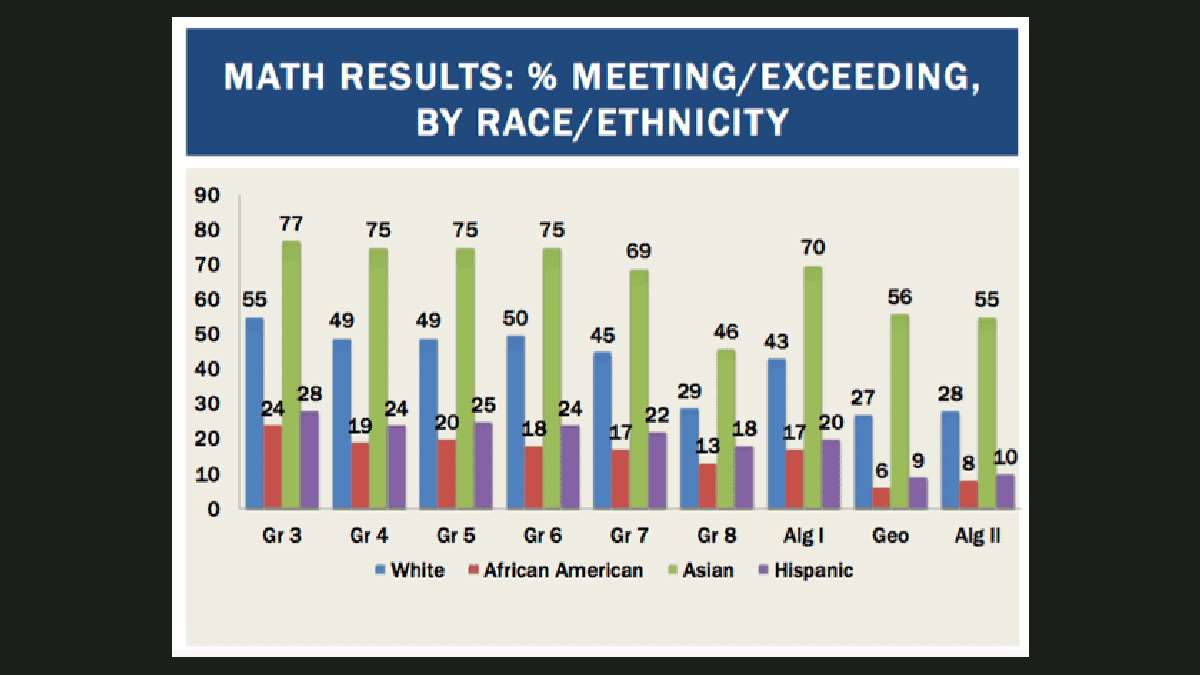NJ’s PARCC exam scores magnify impact income and race can have on students
While New Jersey’s so-called “achievement gap” between rich and poor and white and minorities has always been wide, the chasm appears even wider based on the first year of the new PARCC testing.
The Christie administration yesterday provided the State Board of Education with more results from last spring’s debut of the online testing, with the data this time broken down by race and income.
The breakdown based on income levels showed that while 44 percent of the state’s third-grade students met PARCC’s expectations on that grade’s language arts test – hardly an encouraging number — the rate for low-income students was just 25 percent.
The disparities in the older grades were even more disheartening. Just 22 percent of students categorized as low-income met the mark on the new PARCC sixth-grade math exam, compared to 53 percent of those not considered low-income – a gap of more than 30 percent.
The numbers broken down by race are equally stark. While 80 percent of Asian students and 61 percent of white students “met expectations” for the seventh-grade language arts test, the numbers for African-American and Hispanic students were 30 and 35 percent, respectively.
The presentation was part of a discussion before the State Board on what comes next with the new testing.
The first statewide results were released last month, and schools are slated to receive their individual results and that of their students in the next couple of weeks. The public release of all school and district scores will come in January, according to the state.
As expected, the state board, in a resolution vote, adopted the PARCC scoring of the results and the consortium’s five categories for achievement, ranging from “not meeting expectations” (Level 1) to “approaching expectations” (Level 3) to “exceeding expectations” (Level 5).
The board also heard a presentation from the administration on how those marks would be applied – at least for now – to the state’s high school graduation requirement.
The Christie administration has said it would not set a hard-and-fast bar for graduating until the Class of 2020 – next year’s ninth-graders – instead providing options for meeting the graduation requirements in lieu of the PARCC test scores.
While one option includes minimum scores on one or more PARCC tests, students can also meet graduation requirements by achieving a specified minimum score on the SAT and ACT college entrance tests or other college placement assessments. The last resort is an appeals process in which students can display their actual work and present testimonials from teachers.
Yesterday, officials defined what the temporary requirements will be for the PARCC marks, with variations according to grade levels and subjects.
For example, students would meet the graduation requirement for language arts by getting at least a 750 – “meeting expectations” – on the 10th grade test or a slightly lower 725 – or “approaching expectations” — on the 11th grade exam.
The minimum bar on the math side will be achieving at least 750 on the Algebra 1 exam, typically given in eighth or ninth grade, or a 725 on the geometry or Algebra II tests.
The high school benchmark has been the most contentious issue, given that the stakes are the highest, and a chief critic of the state’s methods yesterday said the administration’s latest line still remains an unfairly defined barrier for tens of thousands of current seniors on the cusp of graduating.
“Now that [the administration] has set PARCC cut scores, we estimate about 35,000-40,000 seniors will not be able to use PARCC to graduate and will have to find another ‘option’ to get a diploma,” said Stan Karp of the Education Law Center, the Newark-based advocacy group.
“The Department’s plan is unfair to students and their families and violates the law for changing graduation requirements,” he said.
RELATED LINKS
___________________________________________________________
NJ Spotlight, an independent online news service on issues critical to New Jersey, makes its in-depth reporting available to NewsWorks.
WHYY is your source for fact-based, in-depth journalism and information. As a nonprofit organization, we rely on financial support from readers like you. Please give today.







